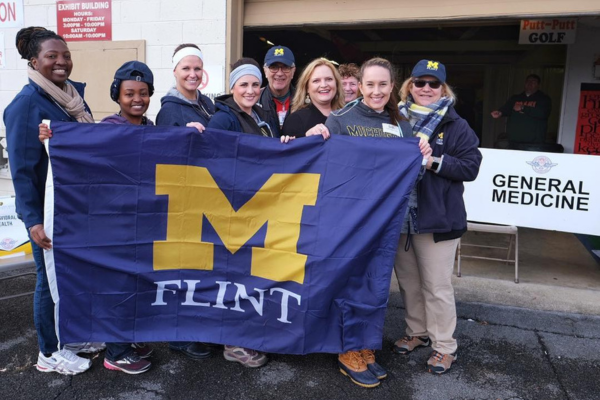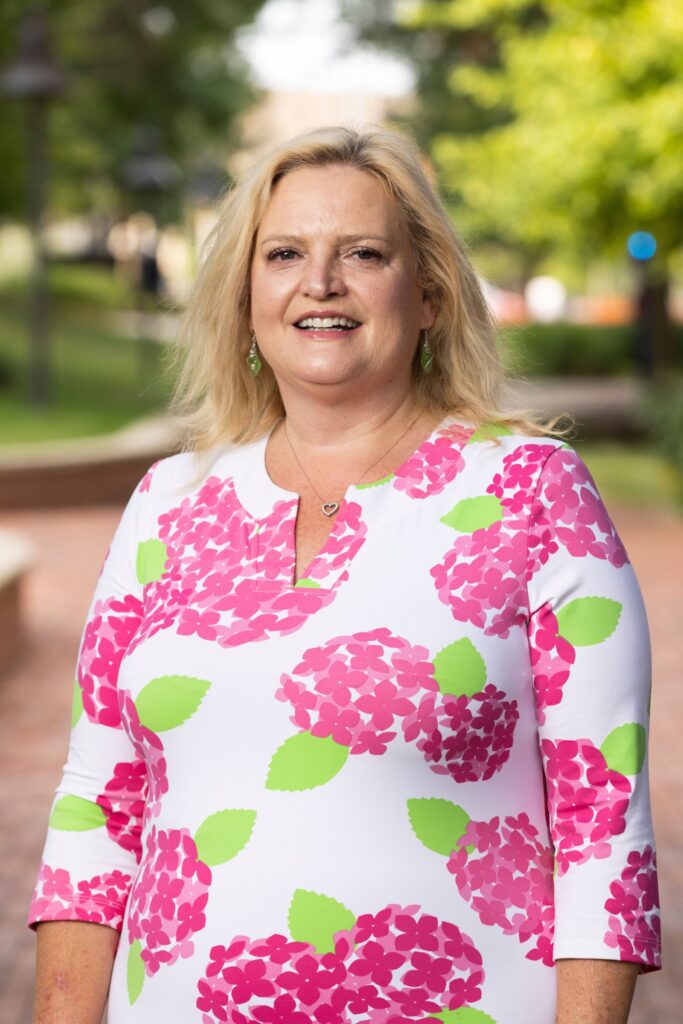Five ways service learning improves lives through nursing education

For two days in April, a group of University of Michigan-Flint nurse practitioner students, faculty, and alumni will provide health care for residents of a remote area in Virginia. As part of a service learning experience, participants from the School of Nursing will experience life-changing interactions with patients experiencing significant health disparities in the Appalachian region of southwestern Virginia.
Service learning is recognized as a valuable approach for providing students with experiential learning opportunities among populations that they may not encounter in their local clinical learning environments.
Here are five ways service learning in nursing improves lives:
Clinical Competence
It enhances learning by expanding the range of hands-on opportunities for clinical experiences.
This year, a group will travel for the third time with Remote Area Missions—a nationwide initiative delivering complimentary pop-up clinic services. Christina Aplin-Snider, associate professor of nursing, is the faculty leader for this trip.

"I look forward to spending time with the students and offering an environment to them where they can learn things they would otherwise not have access to," she said. "It's unlike anything else that these students can experience in a traditional clinical setting."
While there, participants will assess patients, perform physical exams, delegate care, refer patients to specialists, chart documentation, and recommend formulary medications. Moreover, students will work alongside a preceptor in the primary health care tent, a women's wagon, a surgery tent, an orthopedic wagon, and a cardiology tent, adding to their competency in the diversity of ways care is delivered.
Increased Community Engagement and Access to Health Care
It brings medical and health care to those in need.
For example, this year, students met in virtual seminars and prepared for the event by researching the needs of the Appalachian region. In an article written by Aplin-Snider and Helene Vossos in 2022, the authors reference factors leading to the need in this region including living wages — the median Appalachian salary is $43,785, compared to $53,046 nationwide — and high rates of poverty and unemployment (8.1%). Through this experience, those who lack access to health care are able to receive it, while connecting with members and resources within their community.
Interprofessional Collaboration
Medical service learning often involves working alongside various health care professionals and community organizations.
Participating students will work with professionals that deliver care across diverse health care specialties, including dermatology, cardiology, orthopedic surgery, women's health, dental care, osteopathic spinal manipulation, X-ray, podiatry, pharmacy, and mammography. This experience allows nursing students to learn about the value of interprofessional teams, improving communication and collaboration skills that are essential in today's complex health care environment.
Professional and Personal Development
Engaging in service learning cultivates a sense of civic responsibility and ethical understanding in nursing students.
Not only does it encourage lifelong learning and self-reflection, it enables students to develop into compassionate nurses who are conscious of their roles as health care advocates.

"I got my first degree in public health and then from there I went on to nursing; this trip is my way of being able to physically help people," said Whitney Mankins, a nurse practitioner student from Swartz Creek. Paul Linville, a U.S. Navy veteran and 2023 UM-Flint nurse practitioner graduate is joining the trip to continue his dedication to service. "I was in the Navy for 20 years so it's been a lifelong inspiration to be of service to other people. I just think it's very valuable to have students go to these communities to experience life there and get a better idea of nursing care." The group is also conducting a continuation study looking at students' perspectives on how service learning impacts their learning, as well as the impact on their personal and professional lives.
Health Promotion and Education
Nursing students involved in service learning contribute to health education promotion in the community.
Until meeting these patients face-to-face, students on previous trips shared they did not realize the reality of the disadvantages many faced from not having access to health care services. The students also were required to prepare educational materials to share with the patients during the RAM event. These educational materials were focused on the top five areas of morbidity and mortality for Appalachian residents, including cardiovascular disease, obesity, poor nutrition, tobacco use, and lack of access to dental care.
In engaging in this experience, students will learn the value of individualizing care while promoting respect and understanding to a large socially and culturally varied population. Students and community members will benefit significantly from this service learning experience by respectfully influencing healing for economically stressed populations struggling with a lack of health care access in rural locations.
To learn more about service learning and other opportunities at SON, visit the school's webpage.
Related Posts
No related photos.
Asinda Sirignano
Asinda is a communications specialist with the School of Nursing. She can be reached at asirigna@umich.edu.